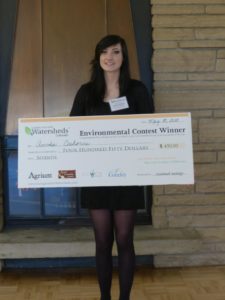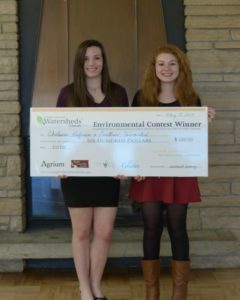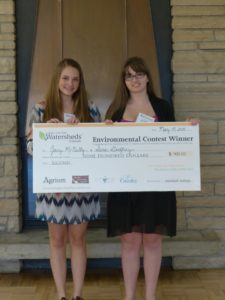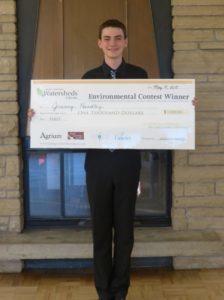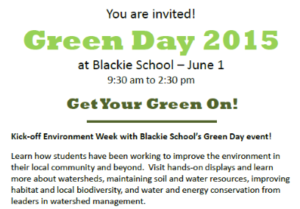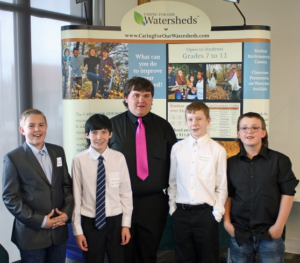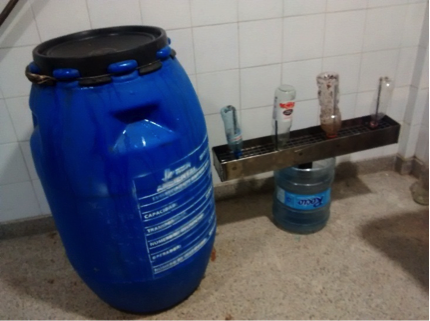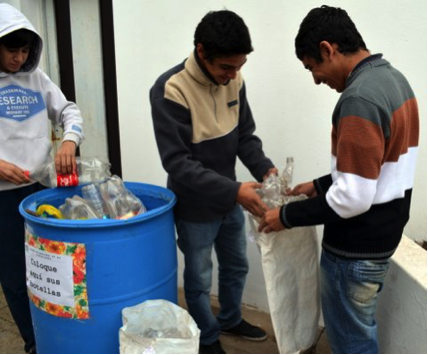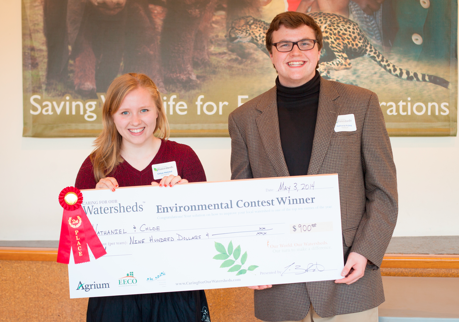2015 Winnipeg, Manitoba, Canada
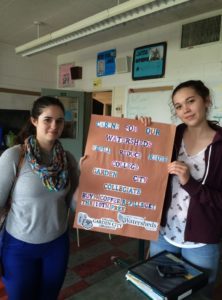
Sophie and Sarah saw an easy solution to a common problem at their school’s canteen: the use of Styrofoam cups. The duo proposed an incentive program for students that brought re-usable mugs for their coffee as a way to encourage students to bring their own mugs, thus reducing the number of Styrofoam cups used in the school. This is important because, “a Styrofoam coffee cup will remain in a landfill for close to 500 years. When heated it releases toxic chemicals into the food making it hazardous to your health and it fills up to 30% of landfill space around the world.”
Working with the school canteen, and with the help of Nutrien, Sarah and Sophie created an incentive program that will result in an increased awareness and less Styrofoam going to the landfill!

